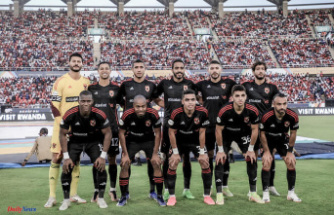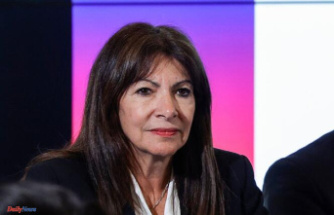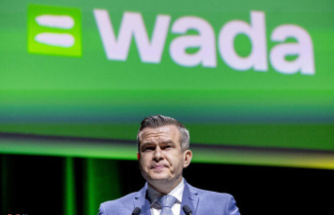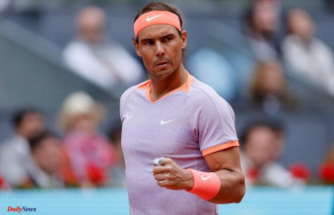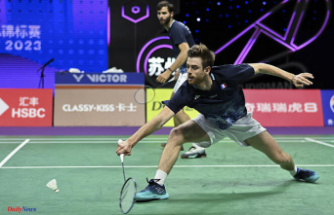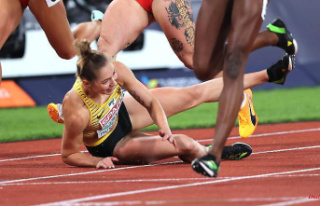The association of the 36 clubs of the highest German football leagues unites clubs with different agendas, but common goals: The DFL knows about the challenges of the future and wants to face them. With clear demands on politics and the knowledge of one's own responsibility.
The new coat of paint on the white wall of the Dortmund exhibition center will not last long. Only for the General Assembly of the German Football League was the red logo of the kicking player placed under large black letters - with a temporary useful life. Within the Westfalenhalle, on the other hand, the powerful umbrella organization made long-term effective decisions for the difficult future with the energy crisis, international competition and football policy debates.
"That was very good today, with great unity and very purposeful in terms of the major challenges that we are facing," said Supervisory Board Chairman Hans-Joachim Watzke, who was confirmed in office as expected. The "big signal of unity" is "not a matter of course", each club has its own agenda.
DFL Managing Director Donata Hopfen spoke of "future options" and "issues for the future" that the 36 professional clubs had dealt with "intensively". "We had a very good discussion about the next steps." During the press conference that followed, Hopfen went into more detail, but not too much. A "formal process" for possible partnerships will be started, but "without prior determination". Most recently, the possible participation of partners in the marketing of the media rights was reported.
After years of growing media contracts and the resulting prosperity, German football is struggling to maintain it. In particular, the increase in revenue from international business seems necessary. At the beginning of the year, Hopfen followed in the big footsteps of Christian Seifert, who, like Karl-Heinz Rummenigge and Peter Peters, was made an honorary member of the DFL. This is only possible together, and nothing was known in Dortmund of quarrels and bickering, as was the case at previous general assemblies.
The debate about the 50 1 rule, which protects against excessive investor influence, remains a smoldering topic. Club representatives with different agendas sit on the newly elected Executive Committee and the Supervisory Board. Axel Hellmann from Europa League winner Eintracht Frankfurt is also new to the presidency - it remains to be seen whether he will continue to speak for medium-sized companies or be more oriented towards the big ones.
"The German Football League showed today that they are very united," said Watzke at the end of the three-hour public part of the General Assembly at the historic location. The Bundesliga was founded 60 years ago in Dortmund's Gold Hall.
DFB President Bernd Neuendorf used his greeting to call on politicians to help deal with the energy crisis. "The expected price increases in the energy sector will affect us all through levies. In the worst case, the places will be closed completely. We must now make it clear that the corona mistakes of the past must not be repeated," said the 61-year-old. "The sports facilities must remain open. We cannot keep children and young people away from the courts again. The resulting additional costs must be financed by the federal and state governments. We need a sports relief package," said Neuendorf.
Hopfen and Watzke emphasized again that football should not be used for "symbolic politics" in the energy crisis. The topic is "highest on the agenda," said Hopfen, and Watzke added: "We can save significant energy (...). We can save 15 percent - ideally even more - energy. We will deal with it responsibly and sensibly. "


